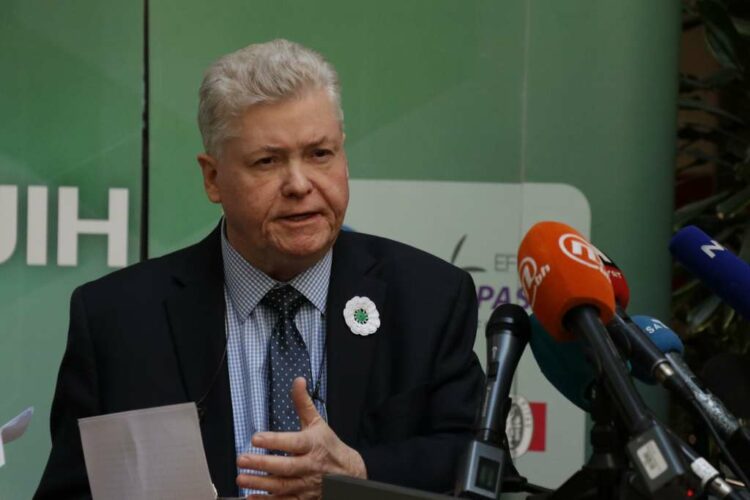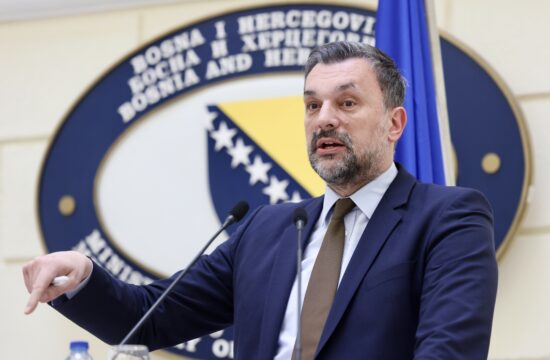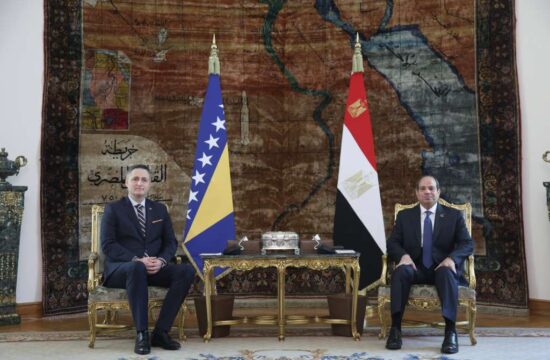
The verdict of the Appeals Chamber of the International Residual Mechanism for Criminal Tribunal (IRMCT) in the conviction of Jovica Stanisic and Franko Simatovic, who were high-ranking members of the State Security Service of Serbia, is extremely significant because it confirms that they, together with other leaders, were part of a joint criminal enterprise undertaking with a plan and common intention to forcibly and permanently remove non-Serbs from the territory of Croatia and Bosnia and Herzegovina, by committing the crime of persecution, murder, as well as deportation, Professor of Philosophy at the University of Southern Connecticut and a member of the Board of Directors of the Program for the Study of Genocide at Yale University David Pettigrew, told Fena on Monday. Pročitaj više
“Establishing that the leadership of this joint criminal enterprise was located in Serbia, the judgment of the Appeals Chamber provided another key confirmation that the crimes committed in BiH had the character of an international armed conflict, and not a ‘civil war’, as revisionists or genocide deniers have tried to claim,” added the distinguished American professor.
The verdict also stated that Stanisic and Simatovic “shared the intention of the advocates of the common criminal goal to forcibly and permanently remove the majority of non-Serbs from large areas of Croatia and Bosnia and Herzegovina.” Although the judgment of the Appeals Chamber does not use the word genocide, the conclusion about the existence of an eliminist plan to “permanently remove the majority of non-Serbs” speaks of the genocidal dimension of the criminal plan, he said.
“This is an important realization for future analyzes and strategies for transitional justice and state building. The lack of actual prosecution and conviction for genocide in this case, as well as in many other ICTY cases, despite the recognition of the aforementioned eliminist plan, remains deeply problematic,” Professor Pettigrew noted.
He added that in light of this verdict, the Mothers of Srebrenica, as well as other associations of victims and individual survivors, have the right to seek compensation from Serbia and Bosnia’s Republika Srpska entity, in a manner similar to the proceedings initiated by the Mothers of Srebrenica against the Netherlands.
“The Mothers of Srebrenica have already announced their intention. There is also an important connection with the genocide in Srebrenica, which was determined by the verdict of the Appeals Chamber, because the “Skorpioni” unit under the control of Stanisic and Simatovic killed Srebrenica civilians in Trnovo,” Pettigrew pointed out.
In addition to the right of Mother Srebrenica and other victims to seek justice by suing Serbia and Republika Srpska, the professor points out that the finding of the existence of a joint criminal enterprise based in Serbia, along with the international character of the armed conflict, suggests that international aggression was committed by Serbia from 1992 to 1995 in the pursuit of “Greater Serbia”.
Moreover, the Prlic cases already indicated the existence of an international armed conflict in which Croatia was involved, which also indicated international aggression in search of a “Greater Croatia,” which is why Pettigrew notes that this realization should guide the US and EU representatives as well as the international community in their involvement in the region.
He recalled that the former high representatives in BiH, Valentin Inzko and Christian Schwarz-Schilling, stated that Serbia and the RS did not achieve their goals from the nineties, that they maintain very close relations with Russia, which is why they expressed their fear that “the current aggression against Ukraine could expand to the Western Balkans, primarily to BiH and Kosovo.”
However, according to Pettigrew, there was insufficient response to the visits of the President of Bosnia’s RS entity, Milorad Dodik, to Moscow or to the warlike behavior of Serbian President Aleksandar Vucic on the border with Kosovo.
“It seems that Croatia is a partner of American, EU and international diplomats in designing the recent electoral reform in BiH in favor of the Croat Democratic Union (HDZ) and its call for ‘legitimate representation of Croats’ – a position that has found one of its strongest supporters in the Russian Federation, Pettigew pointed out.
He therefore urged that the Appeals Chamber verdict in the Stanisic and Simatovic case regarding the joint criminal enterprise, the implication of international aggression and the eliminating dimension of the plan for the permanent displacement of non-Serbs from the territory of BiH should be a call to the international community to once and for all defend the territorial integrity of BiH and provide support to the survivors in their efforts to seek justice while resisting genocide denial and seeking the right to memorials and reparations.
Jovica Stanisic and Franko Simatovic, former heads of the State Security Service (SDB) of Serbia, were sentenced to 15 years in prison each, on May 31, 2023, for war crimes in Bosnia, participation in a joint criminal enterprise (JCE) and a murder committed in Croatia.
This was a final verdict handed down by the Mechanism for International Criminal Courts (MICC) to Jovica Stanisic, the former head of the SDB, and Franko Simatovic, the former commander of the Special Operations Unit (JSO), after renewed proceedings.
Stanisic and Simatovic were found guilty for the joint criminal enterprise with the aim of forcible and permanent displacement of the non-Serb population from large parts of Croatia and BiH during the war (1992-1995) by committing murders, deportations and inhuman acts, i.e. forced relocation and persecution.
The chief Prosecutor of the Mechanism, Serge Brammertz, expressed his satisfaction with the final judgment of the Appellate Council of the Court in The Hague, stressing that the verdict reaffirmed that there was no civil war in BiH, but an international conflict.
“This verdict showed that the political leadership of neighboring countries participated in the international conflict. I emphasize again that this is about the individual criminal responsibility of the military and political leadership, in this case the head of the intelligence services,” Brammertz said after the final verdict.





Kakvo je tvoje mišljenje o ovome?
Budi prvi koji će ostaviti komentar!